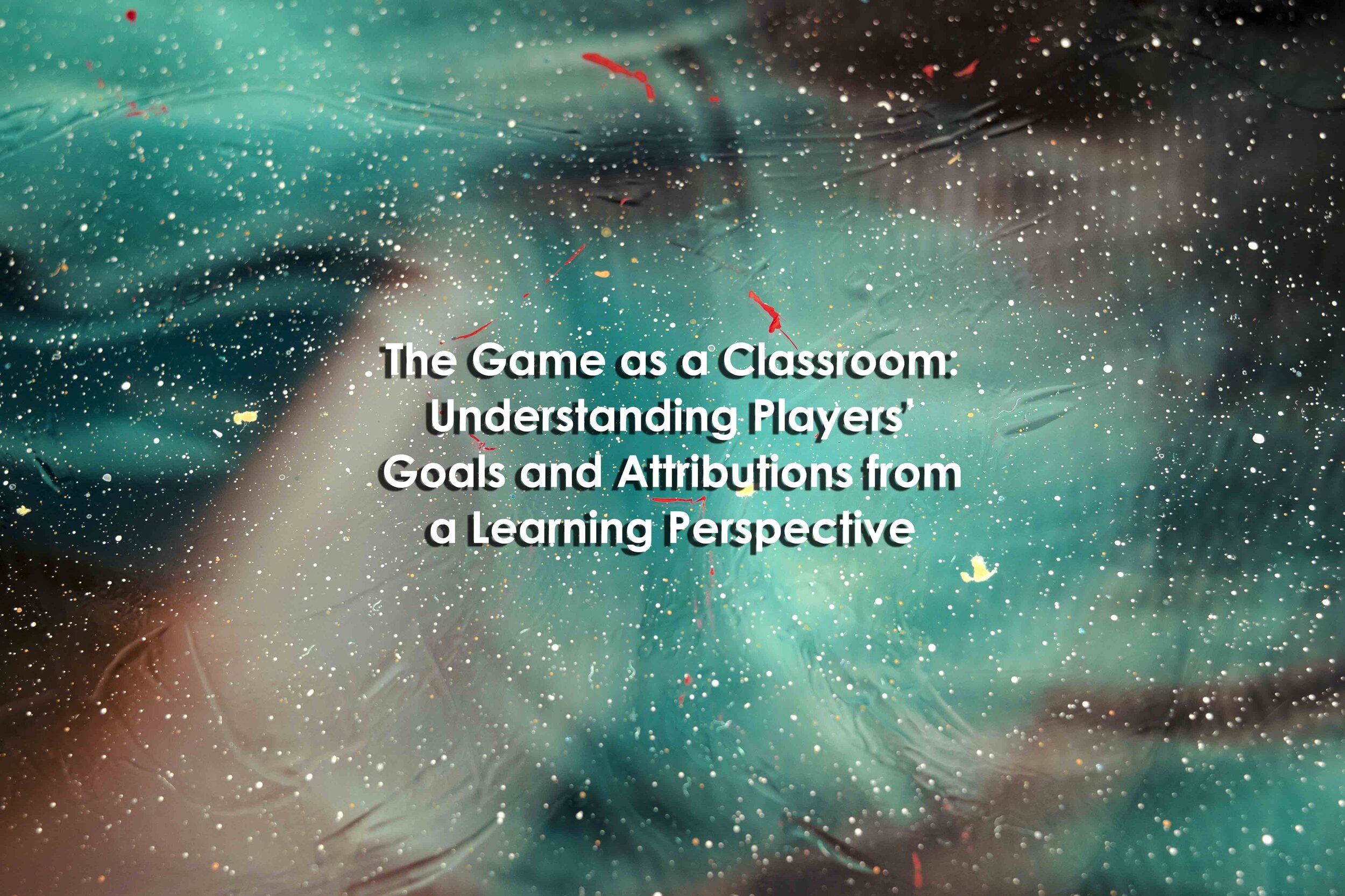The Game as a Classroom: Understanding Players’ Goals and Attributions from a Learning Perspective
The Game as a Classroom: Understanding Players’ Goals and Attributions from a Learning Perspective
The Game as a Classroom: Understanding Players’ Goals and Attributions from a Learning Perspective
William Martin & William Martin
Abstract
“Much work has been done on educational games, game-based learning, and gamification in recent years, exploring how games may benefit learning. However, the reverse relationship has yet to be fully explored—how can educational psychology and pedagogy influence our understanding of player experience and the design of games? A study was conducted to examine how various aspects of player experience are related to two commonly used motivational constructs in educational psychology: achievement goals and causal attributions. In the study, 165 participants were asked to play a game and fill out a questionnaire on their experiences. We found that players’ achievement goals and causal attributions were both significantly correlated to various components of player experience. Additionally, we found that achievement goals and causal attributions are significant predictors of psychological flow over and above feelings of challenge and immersion. While challenge and immersion are typical considerations when seeking to design flow experiences in games, this study suggests that game designers should also consider ways in which they may inspire particular achievement goals and causal attributions in their players. These findings highlight the connection between the learning sciences and the growing field of player experience, and we hope this paper serves as an example for future translational work.”
Reference
Martin, W., & Magerko, B. (2020, September). The Game as a Classroom: Understanding Players’ Goals and Attributions from a Learning Perspective. In International Conference on the Foundations of Digital Games (pp. 1-4). https://dl.acm.org/doi/abs/10.1145/3402942.3403027
Keywords
games, learning, games-based learning, learning games

